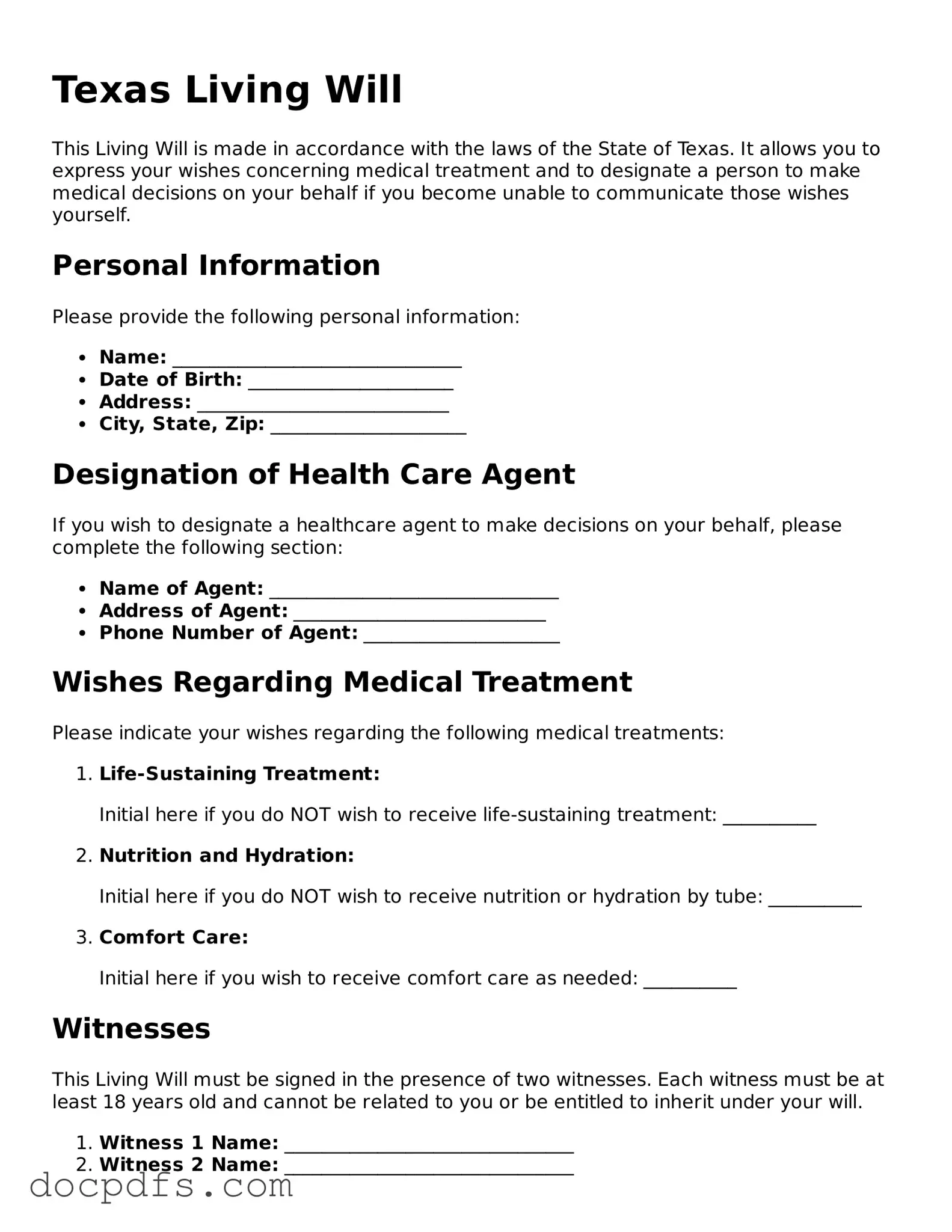Free Texas Living Will Form
A Texas Living Will form is a legal document that allows individuals to outline their wishes regarding medical treatment in the event they become unable to communicate their preferences. This form serves as a vital tool for ensuring that your healthcare decisions are honored, even when you cannot express them yourself. Understanding its importance can provide peace of mind for both you and your loved ones during challenging times.
Open Living Will Editor Now

Free Texas Living Will Form
Open Living Will Editor Now

Open Living Will Editor Now
or
⇓ Living Will
Finish this form the fast way
Complete Living Will online with a smooth editing experience.